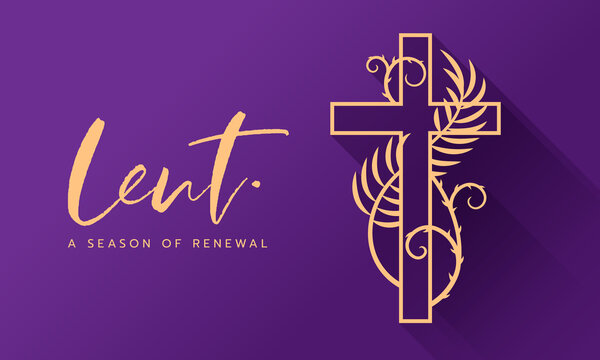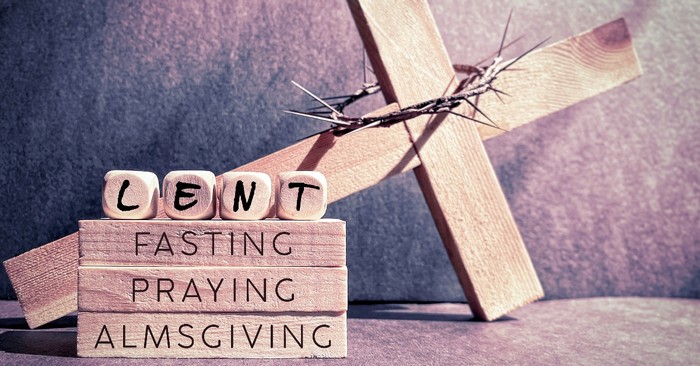What is Lent?
Lent is more than just a season on the calendar—it’s a sacred 40-day journey leading up to Easter, offering Christians a powerful opportunity to grow spiritually.
Beginning on Ash Wednesday and concluding on Holy Saturday, Lent invites believers into a time of deep reflection, prayer, fasting, and almsgiving.
It’s a time to prepare both heart and mind for the immense sacrifice of Good Friday and the triumphant joy of Easter Sunday.

Traditionally observed by Roman Catholics, Eastern Orthodox, and many Protestant Christians, the 40 days of Lent are modeled after Jesus’ own 40 days of fasting in the wilderness, a time of temptation and spiritual preparation.
The word “Lent” itself originates from the Old English word lencten, meaning spring, reflecting the season of renewal that this period represents.
It is also derived from the West Germanic word langitinaz, meaning “long days,” signaling the spiritual lengthening of time spent in prayer and devotion.
What is Ash Wednesday?
The season of Lent begins with Ash Wednesday, a day of solemn reflection and repentance. The name “Shrove” Tuesday, observed the day before Ash Wednesday, comes from the Old English shriven, meaning to confess one’s sins and receive absolution.
On Ash Wednesday, believers often receive a cross of ashes on their foreheads, a physical symbol of mortality and repentance.
This ancient ritual calls to mind the words from the Scriptures: “For you are dust, and to dust, you shall return” (Genesis 3:19).

These ashes symbolize our need for repentance, our human frailty, and our desire to renew our relationship with God.
As Daniel 9:3 reminds us, “I turned my face to the Lord God, seeking Him by prayer and pleas for mercy with fasting, sackcloth, and ashes.”
It is a reminder to humble ourselves before God, to acknowledge our need for His mercy, and to begin this sacred season with sincere hearts.

Key Dates of Lent
Lent’s journey is marked by profound milestones:
- Palm Sunday: The final Sunday of Lent, marking the triumphant entry of Jesus into Jerusalem. The crowds welcomed Him with palm branches, declaring Him as King.
- Maundy Thursday: Commemorates the Last Supper, where Jesus demonstrated humility by washing His disciples’ feet—a powerful symbol of His servant heart.
- Good Friday: A day of deep reflection on the crucifixion of Jesus. It is a time to mourn the weight of our sin, but also to recognize the ultimate sacrifice that offers redemption for all.
- Holy Saturday: A day of quiet anticipation. We remember Jesus’ time in the tomb and prepare for the glorious resurrection to come.
- Easter Sunday: The ultimate celebration of hope and victory. Christ is risen, offering us new life, forgiveness, and the promise of eternal communion with Him.
Why Does Lent Last 40 Days?
The 40 days of Lent mirror significant moments in Scripture:
- Jesus’ 40 days of fasting and temptation in the wilderness (Matthew 4:1-11).
- Moses’ 40 days on Mount Sinai to receive the Ten Commandments (Exodus 34:28).
- Elijah’s 40-day journey to Mount Horeb (1 Kings 19:8).
- The 40 days of rain during Noah’s flood (Genesis 7:12).
- The Israelites’ 40 years of wandering in the desert (Numbers 14:33).
Each of these 40-day periods marked a time of testing, growth, and transformation—spiritual preparation for the greater purpose God had in store.
The Purpose and Meaning of Lent
At its core, Lent is a time of repentance and spiritual renewal. It is a season that invites believers to emulate Christ’s sacrifice, and to step into the wilderness of their own hearts to wrestle with temptation, just as He did.
Fasting during Lent is not just about abstaining from food, but also from things that take us away from God—whether that’s a bad habit, a comfort, or an addiction.
Lent is an invitation to walk with Christ through His suffering, understanding that our own sacrifices are a way to become more like Him.

It is not about legalism, but about surrendering to God’s will, acknowledging our dependence on Him, and drawing closer to His presence.
As we fast, pray, and give alms, we open ourselves to greater intimacy with God, and prepare for the joy of Easter.
Simple Ways to Observe Lent
- Examine your life: Reflect on your relationship with God and areas where you need repentance. Confession and seeking God’s mercy are central to this season.
- Give something up: Fasting during Lent could mean abstaining from food, a particular luxury, or a vice that hinders your spiritual growth. Make your fast a true sacrifice.
- Commit to prayer: Dedicate time each day for prayer and reflection. Invite God to reveal areas in your life where He desires to bring healing and transformation.
- Serve others: Almsgiving is an essential part of Lent. Look for opportunities to serve those in need and reflect God’s love through acts of kindness.
- Seek solitude: Lent is also a time to quiet your soul, listen to God, and spend time in His presence, away from the noise and distractions of everyday life.
Lent: A Time for Transformation
Lent is not just a tradition—it’s an opportunity for a profound spiritual transformation. It is a season that calls us to draw near to God, to confess our sins, to fast in solidarity with Christ, and to open our hearts in service to others.
As we journey through these 40 days, may we reflect on Christ’s ultimate sacrifice and embrace the hope and new life His resurrection offers.
Let Lent be a time to grow deeper in faith, closer to God, and more committed to the life He calls us to live.
Here are 10 popular ideas for what to give up during the lent season:
Social media
Sugar
Alcohol
Online Shopping
Clutter
Complaining
TV
Video games
Soda
Eating out
Are you ready to embrace this season of spiritual renewal? Let the 40 days of Lent be a time to encounter God like never before.
Lenten Prayer
O Lord and Master of my life!
Take from me the spirit of laziness,
faint-heartedness, desire for power, and idle talk.
But give your servant
the spirit of chastity,
humility, patience, and love.
Yes, Lord and King!
Grant me to see my own errors
and not to unjustly or hastily judge my brother,
for you are blessed, now and forever. Amen.
Source: Lenten Prayer of St. Ephrem the Syrian



